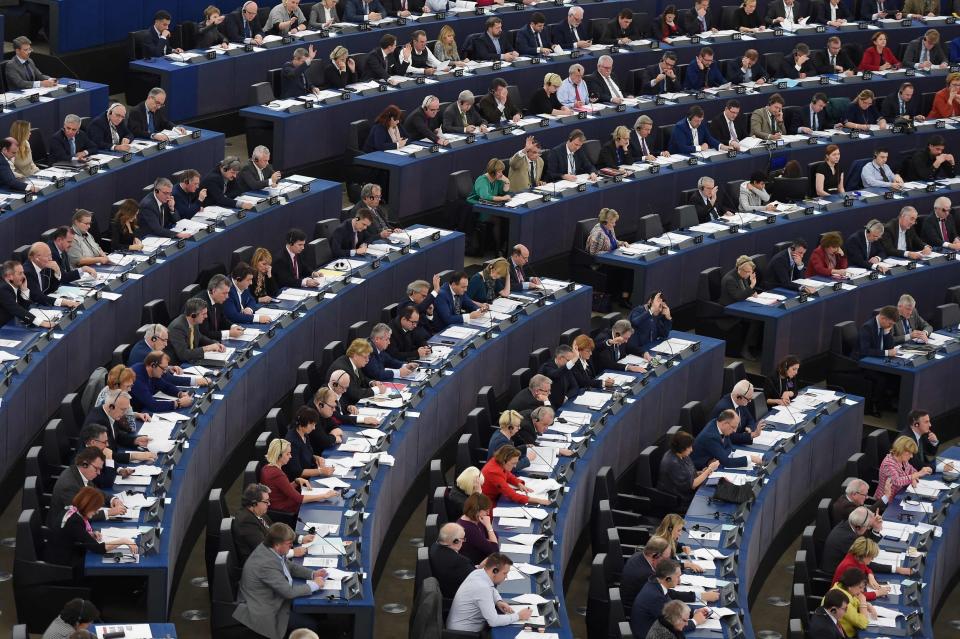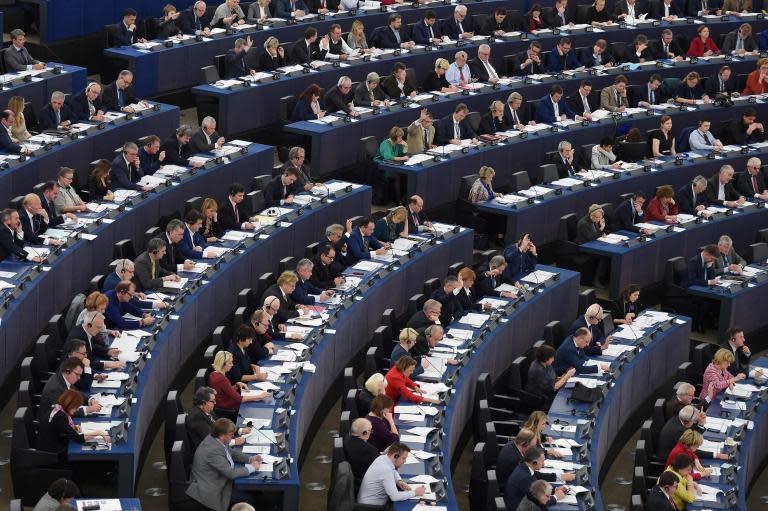Brexit news: What Britain's last ever MEPs are planning to do after March 29
Britain's 73 MEPs thought they would be made redundant in March of this year; but with uncertainty about the UK's departure date from the EU now hanging over them, nobody – whether Leave or Remain – knows what the future has in store.
Not having any MEPs will be a big change for Britain, but it will be an even bigger one for the UK’s final crop of representatives – some of whom have been shuttling between the parliament’s twin bases in Brussels and Strasbourg for decades. They will need to decide what to do next.
“I’ve made a retirement plan. I’m going to write a blockbuster, Brexit: The Musical,” jokes Molly Scott Cato, a Green MEP who has been at the forefront of campaigning against Brexit. Musical numbers, she playfully suggests, would include Brexiteers singing “I want to break free” and Boris Johnson doing a rendition of “I want it all, and I want it now”.
The retirement of the Greens’ three MEPs will be a big blow for the party, which has struggled to win seats in Westminster because of the winner-takes-all voting system – but is better represented in Brussels with its proportional representation.
Pressed whether she is serious about the musical, Ms Scott Cato says: “To be honest, I’m pretty tired of answering this question. It’s a distraction from the important political work at this time of crisis for the country that I am especially well placed to play a part in. I’m going to fight Brexit right down to the wire.”
If she can’t stop Brexit, the MEP says she’ll need a holiday – she is thinking about the Trans-Siberian Express.
“I’ll have the headspace to work out where I want to live – not to mention where I’ll be allowed to live,” she explains.
A lengthy canvass of the British delegation suggests most MEPs do not seem to have specific jobs lined up for the departure date. Most won't have to look too hard for employment: MEPs will be getting "transition payments" when they leave equalling one month's salary for each year served, up to a maximum of 24 months. Some will be in line for as much as £170,000.
Those who have found something to do aren’t keen to advertise their success: most talk about continued campaigning on issues they care about. There is one running theme in the answers The Independent gets from the British MEPs: among pro-Remain MEPs trying to stop Brexit, few are focused on what to do if they fail – but rather the task in hand.
Julie Ward, a Labour MEP for the north west, says she hopes Brexit can be stopped and that she “will hopefully be campaigning for re-election” as an MEP next year. Seb Dance, another pro-Remain Labour MEP, signals he’s in it for the long haul, adding: “If Brexit happens, the very first thing I’ll do will be to involve myself in whatever campaign is working on getting the UK back into the EU.”
Labour’s European parliament delegation is politically a mixed bunch, but it is far more Europhile than its party in Westminster – which, with some exceptions, has for now more or less submitted to the 2016 referendum result. Few will go on record and say so, but among the exodus of jobless politicians set to return to the UK in March, many fancy a seat in Westminster. The timing of the general election and where gaps open up will be key to how successful they are. For now though, most are trying to push their party leadership in a Remain direction and get its backing for a second referendum.
Though the anti-Brexit struggle is clearly personal for Remain-supporting MEPs – they’re losing their jobs and having their lives uprooted – all the outspoken campaigners against Britain’s departure here are very genuine in their belief that the UK would be better off in the bloc than out.
One of the paradoxes of Brexit is that it has put the spotlight on Brussels like never before, with all corners of the British press engaging with the EU institutions for the first time. MEPs, who have long been anonymous to British voters, have also had a lot more attention. Some of it has been positive: a few have been feted as heroes by pro-Remain campaigners back in the UK. But some has been negative: the Conservative delegation hit headlines in the wrong way earlier this year when it voted against sanctions on the authoritarian Hungarian government of Viktor Orban.
But from March, the British seats will be unceremoniously divided up among the other countries: 27 will be redistributed immediately, with France, Spain, Italy, and the Netherlands the biggest beneficiaries. Forty-six will initially be used to reduce the size of the chamber to 705 MEPs (which will still be rather big by international standards) and be kept in reserve for future enlargements. MEPs from likely future member states such as Montenegro and Macedonia will sit where Britain's once sat.
“Fighting Brexit these past three years has been like running a marathon. We’re all absolutely exhausted,” Catherine Bearder, the Lib Dems’ sole representative in Brussels, tells The Independent.
“I’m one of the older UK MEPs and will finally get to enjoy retirement,” she adds. But despite being on the verge of turning 70, the South East MEP reckons she won’t be able to keep away from the campaigning.
“Politicians can never really retire. Not when there are still things in the world worth fighting for,” she says. Ms Bearder plans to continue her campaigning against wildlife trafficking, one of the issues she has pursued with gusto since becoming an MEP a decade ago.
But the theme of uncertainty isn’t just found among Europhiles – plenty of Eurosceptics are equally dubious about whether Brexit will happen or not, and aren’t sure where they’re going to be next year either.
Ukip’s group of MEPs has taken a beating in recent months – with party leader Gerard Batten admitting he doesn’t know how many have left after a series of resignations. Ironically, it is in the European Parliament where the original Eurosceptics have done the best – winning the last European parliament elections the UK participated in in 2014. They’re not expected to pick up any seats in Westminster once Britain has “taken back control”, with most of their voters having long since fled to other parties.
Margot Parker, one of the party’s many former deputy leaders, tells The Independent that if she loses her seat she’ll campaign for women’s equality. But with the news as it is, she is as uncertain about her future as her pro-EU colleagues.
“As it stands I will be very surprised if we end up leaving next March,” she says. “I'm not booking any holidays yet."

 Yahoo News
Yahoo News 

